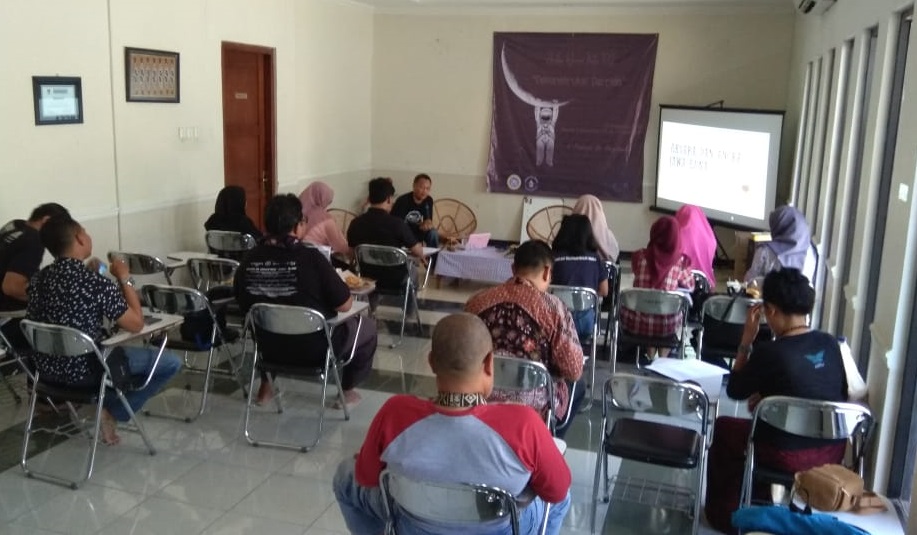UNAIR NEWS – Javanese script is one of Indonesia’s indigenous culture that should be preserved. Unfortunately, over time, Javanese script became increasingly abandoned. A lot of young people are more interested in learning foreign characters such as Korean and Japanese than Javanese scripts which are the products of their own local culture.
Seeing this unrest, students of History program of Faculty of Humanity (FIB) Universitas Airlangga (UNAIR) in collaboration with Komunitas Tapak Jejak Kerajaan held an event titled Learning Old Javanese Script (Sinjakun) at UNAIR Culture House, Sunday, October 7.
In the event, invited Gunawan A. Sambodo, an Archeology graduate from Gadjah Mada University (UGM) as guest speaker. He explained that in addition to Pallawa characters , in the archipelago there is also the Kawi script or Old Javanese which is mostly used in Hindu-Buddhist royal inscriptions.
“But unfortunately, the Old Javanese script can now be considered as dead script because it is no longer used,” he explained in the presentation.
In the forum, Gunawan or known as Mbah Gun also explained about the Old Javanese scripts such as the forms of Old Javanese script, how to read them, the inscriptions found in the Old Mataram period, until discussions about Old Javanese community.
Andri Setyo Nugroho, as the organizing committee, said that with this event, the community, especially the younger generation, would be willing to return and explore Javanese culture.
“With this event, it can certainly improve the interest of teenagers in Old Javanese script. In addition, the event is intended to provide them with knowledge about the history of Javanese people, which is rarely taught in school, “explained the history student.
“After that, we hope that teenagers will carry out positive activities aimed at preserving culture and cultural products of the past, especially in the Hindu-Buddhist era,” he added.
After going to UNAIR, the Sinjakun program will be held regularly in several areas in East Java, one of which is at the Mpu Tantular Museum, Sidoarjo, once a month. At the meeting, participants are invited to practice directly reading inscriptions in an ancient site. (*)
Author: Fariz Ilham Rosyidi
Editor: Binti Q. Masruroh





